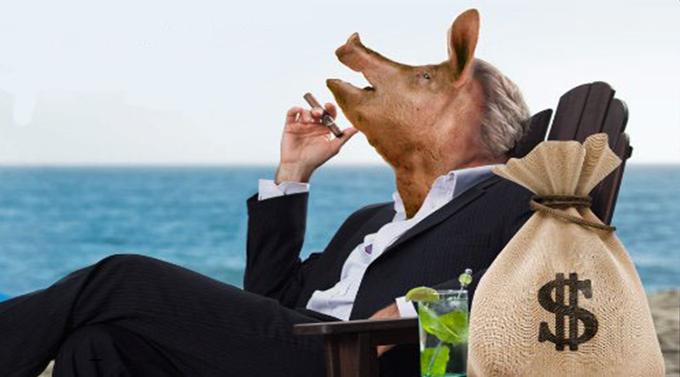The Bankers’ Subversion of the Rule of Law, Notary and Land Records edition
For the next couple of weeks, I’m one of the David Dayen subs at FireDogLake–no one person could fill his shoes–and this post ran there earlier today. This version is slightly updated but essentially the same.
One way to see the double standard at the heart of the foreclosure fraud—one set of laws for the bailed out banks, one for the rest of us—is to focus on the role of notaries public, and then consider that role in light of what our Supreme Court said about notaries in 1984, in a case called Bernal v. Fainter, Secretary of State of Texas.
First, let’s recap the role of notaries in the foreclosure fraud crisis: Notaries are the people who verify that someone actually is who they say they are when that person signs a document. Because banks and their agents industrialized “Document Execution” as part of their foreclosure business model, notaries did not do their jobs. Notaries’ failure to verify identities has been so complete that many people will sign as one person, say, “Linda Green.” Notaries have also been told to sign documents using one name, and then notarize their own “surrogate” signature. “Well, what’s the big deal?” bank defenders say. Beyond the fact that there’s no “business convenience” exception to following the rule of law, consider Bernal.
Bernal involved Texas’s requirement that all notaries be citizens; lawful permanent resident aliens need not apply. Bernal challenged the Constitutionality for the citizenship requirement. To rule on the question, the Court had to consider what notaries did, and whether or not what notaries did was so political, so central to representative democracy, that limiting being a notary to citizens was rational. In finding that notaries were important but not political officers of the state, the Court made some observations of note.
For starters, law-and-order Texas considers the notary job so important it’s in the Texas constitution. The Court noted:
Rest here…
~


That is just too sad to comment to.
The friend am I had doing the Notary for Wells Fargo for about a year a long with numbers other do the same thing but only him and the other Lady get lay of From Wells Fargo due to worked over time Notary 200 doc. per day they are got concern and he had brought to supervisor attention along with the lady do the notary too they one day they said to the Supervisor that Well Fargo can’t do that, so the next day he and the Lady got lay of and they are can no longer have Job Notary for Wells Fargo. but some of other didn’t say any thing they are still work there.